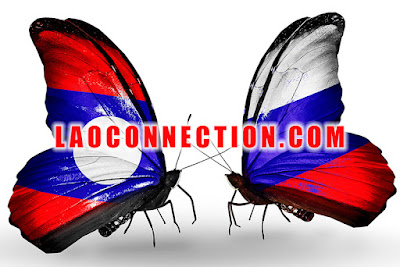Russia's strategic interest in Laos must be viewed through a much wider lens - a regional look, specifically that of Southeast Asia. Russia has very positive relations with most countries of this region, so much so that the Association of Southeast Asian Nations (ASEAN) holds a separate summit just for Russia - aptly called the ASEAN-Russia Summit to which so far 3 have been held.
Here is a look at some of the main reasons behind Russia's strategic interest in Laos and more broadly, SE Asia.
1) Economic interests
By increasing its trade within the region, Russia helps its own industries. Developing countries such as Laos generally import more than they export since its own industries are insufficient to address domestic demand.
Russia's exports to Laos are a broad range of goods including nuclear energy technology, joint minerals exploration, defence weapons and machinery, agricultural and consumer goods.
Bilaterally, in 2019, Laos exported $13.9M worth of goods to Russia which that year primarily consisted of video displays and textiles. While importing from Russia USD$15.7M worth of goods with a focus on aircraft parts, postage stamps, electrical machinery, and wheat.
This of course pales in comparison to Russia's trade regionally in SE Asia. In 2019, trade between Russia and ASEAN was USD$18B and foreign direct investment by Russia into ASEAN stood at USD$45M.
2) A need to counter the sanctions imposed by the US and Europe
There are increasing signs that the continued and sustained sanctions coupled with the COVID-19 pandemic world has affected Russia's economy and its trade. As such, Russia has pivoted increasingly towards Asia and the Middle East in search of new markets.
Sanctions have included:
- EU, UK, US, and Ukraine sanctions in 2014 over the annexation of Crimea in Ukraine
- US sanctions in 2017 over US elections meddling
- US sanctions in 2021 (April) over what the US describes as "Russian malign activities"
4) A desire to counter Western influence
Since the days of the USSR, Russia has always aimed to counter and deter Western influence in the world. In Asia, this continues to this day though to a much lesser extent than compared to Soviet times.
However, Russia's interest in Asia perhaps should not be too surprising considering that half of Russia is on the Asian continent and in Laos' case, the two countries have had official diplomatic relations since 1960.
During the Soviet era, the USSR fought hard to try to deter the ideology of Western democracy. However, in the post-Soviet era, Russia wants to deter what it sees as Western encroachment on its borders. It also desires to be respected and seeks legitimacy both domestically and on the international stage.
On a separate note, some commentators have argued that Russia wants to counter Chinese influence in the region as well. However, statements by Russian and Chinese official channels would suggest that in fact there is no resistance one way or the other. Essentially, that both Russia and China have an understanding that they do not interfere with what the other is doing in Laos or the region. In effect, that they are not a threat to the other as each of them work to court or corral other Asian countries.
To this point, as an example, Russia is currently the second largest arms and weapons exporter in the world behind USA. It sells its wares to many Asian countries, including Laos, Vietnam, Indonesia, India, China, Pakistan, and Bangladesh, among many others. Does China object? Apparently not. Some have argued that China would prefer to see Russian weapons rather than American weapons make their way to Asian soil.
There is some wariness by some Asian countries about both America and China's influence and their intent in the region. US-China posturing in recent years continues to indicate a level of antagonism and mistrust between their two countries. No country wants to be ensnared between the drama of these two giants. And no country wants to be seen as a puppet to a bigger, more powerful country no matter how closely allied they may be.
Therefore to countries such as Laos, Russia presents itself as a third option among the larger politically elite countries - a different option to that of the US and China. This is Russia's strategic foot in the door, as it were.

No comments:
Post a Comment